Research Assistant Professorship (RAP)
Young and research-intensive, Nanyang Technological University (NTU Singapore) is ranked among the world’s top universities. NTU has a vibrant research ecosystem with a high proportion of early-career researchers. It has a healthy environment for interdisciplinary research collaboration and the research is well funded.
The Research Assistant Professorship (RAP) scheme aims to attract early career researchers focusing on research in particularly competitive areas. The RAP recipients must be sought after and of the highest rank. They are expected to bring special skills and expertise to NTU.
Hiring Criteria
- RAP scheme targets early career researchers (i.e. postdoctoral fellows or research fellows) within 4 years of obtaining PhD. or equivalent degree in competitive research areas
- RAP recipients must be sought after and of the highest rank.
- Staff hired as Non-Faculty and Grant-Based RAPs are under the Research Staff scheme.
- The recipient’s formal position is as a Research Fellow/Senior Research Fellow within the NTU Research Staff Scheme with a fixed term of 2-3 years contingent upon the availability of external competitive research grants (e.g., industry funding) from their NTU mentor.
- During their appointment period, the recipient may use the title Research Assistant Professor.
- RAP recipient does not provide a direct pathway to an academic position at NTU.
- Salary range is competitive and will be based on the market rate.
Prioritised Competitive Research Areas
- Artificial & Augmented Intelligence
- Ageing-Related Research
- Biofilm and Microbiomes
- Brain & Learning Culture & Creativity
- Culture, Organisations & Society
- Cybersecurity
- Defence and Security
- Earth
- Education & Transformation
- FinTech/InsurTech
- Food Science and Technology
- Future of Industry
- Geopolitics of Emerging and Disruptive Technologies
- Great Power Politics in the Indo-Pacific Region
- Green finance
- Health & Society
- Human Behaviour & Technology
- Interdisciplinary HealthTech and Biomedical Innovations
- Language & Heritage
- Leadership & Disruptive Innovation
- Mobility & Transportation
- Photonics
- Resilient Urbanisation & Natural Ecosystems
- Satellite Related Research
- Sustainability & Resilience
- Water-Related Research
Application Process
- There will be 2 RAP Calls per year. The 1st RAP Call for 2025 is currently open for applications till 20 May 2025.
- As the successful awardees will be funded by the NTU mentor’s external competitive grants, candidates interested in applying for the RAP scheme are required to contact their potential mentor and work with the potential mentor
in preparing their application package. Candidates can browse potential NTU mentors using this link: https://www.ntu.edu.sg/research/faculty-directory
- Required documents for submission:
- Online application form (Click here to submit your online application)
- Cover Letter (what you have to offer and why you chose NTU)
- CV with Full Publication List (with information on citation and impact factor)
- Research proposal developed in consultation with NTU mentors.
Please be concise and keep the proposal within two (2) A4-size pages. Your proposal should include the following sections:
- Background and rationale for your proposal
- Methodology employed, emphasising the uniqueness of the approach
- Challenges that maybe encountered and how they would be overcome
- Appropriateness of your training and experience
- Indicators used to measure the success of the project
- Letter of support from NTU mentor, confirming the mentor’s interest in supporting the candidate with the mentor’s external competitive funding. Application with missing letter of support from potential NTU mentor will not be considered. (Please attach the letter of support to the research proposal and upload them as a single file in the research proposal section during submission. )
- Degree transcripts/certificates.
- At least two reference letters from your referees. One of them must be your PhD supervisor. Kindly request your referees to deposit their reference letters directly into the online system latest by 27 May 2025, 11:59 P.M. (UTC / GMT +8:00)
The application evaluation will usually take around 1-2 months. Only shortlisted candidates will be notified/contacted.
Queries can be directed at [email protected]
NTU is an equal-opportunity employer. The University is dedicated to the goal of building a culturally diverse and pluralistic university comprising faculty and staff who are committed to research, teaching and working in a multicultural environment. We invite individuals of diverse gender, ethnicity, and other under-represented groups, including those with disabilities, to apply.
Awardees

Feng Kaiyu
Project Title: Deep Learning for Big Spatial Data Management
Kaiyu Feng is currently a Research Assistant Professor in the School of Computer Science and Engineering (SCSE) at the Nanyang Technological University (NTU), Singapore. He obtained his PhD degree in computer science from NTU in 2018, under the supervision of Professor Cong Gao. His research interests include spatial database management and graph database. He is particularly interested in querying geo-taged data stream, spatial data visualization, efficient processing of spatial queries and graph and social data analysis. He has published papers in premium venues in these areas such as SIGMOD, VLDB, ICDE, WWW, and the IEEE Transactions on Knowledge and Data Engineering.

Ng Wei Long
Email: [email protected]
Ng Wei Long is a Research Assistant Professor at HP-NTU Digital Manufacturing Corporate Lab, and his current research focuses on the bioprinting of 3D human-based tissue models. Wei Long was awarded the A*STAR Graduate Scholarship (AGS) in year 2013 to pursue his Ph.D. on skin bioprinting under the supervision of Dr May Win Naing (SIMTech, A*STAR) and Assistant Professor Yeong Wai Yee (School of Mechanical and Aerospace Engineering (MAE), NTU). As a Ph.D. candidate, his key research is on developing of novel bio-inks and engineering functional microenvironment for 3D bioprinted in-vitro human tissue models. After his Ph.D., he worked as a Research Fellow under the supervision of Professor Chua Chee Kai at the Singapore Centre of 3D Printing (SC3DP) and then subsequently under the supervision of Associate Professor Yeong Wai Yee at HP-NTU Digital Manufacturing Corporate Lab. In August 2020, Wei Long took on his new appointment as a Research Assistant Professor to continue his research on 3D bioprinting of human-based tissue models.
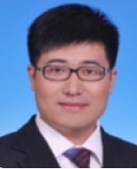
Cao Yi Xin
Email: [email protected]
Cao Yixin was a research fellow with NExT++, National University of Singapore (NUS). He received his Ph.D. in Computer Science from Tsinghua University in 2018. His research interests span natural language processing, knowledge graph and recommendation. Various part of his works has been published in top conferences, such as ACL, EMNLP, COLING and WWW. Cao Yi Xin has also served as PC member for several conferences including ACL, EMNLP, NAACL, AAAI, IJCAI, and NeurIPs, and as reviewers for journals including TKDE, TKDD, TASLP and IEEE Access.
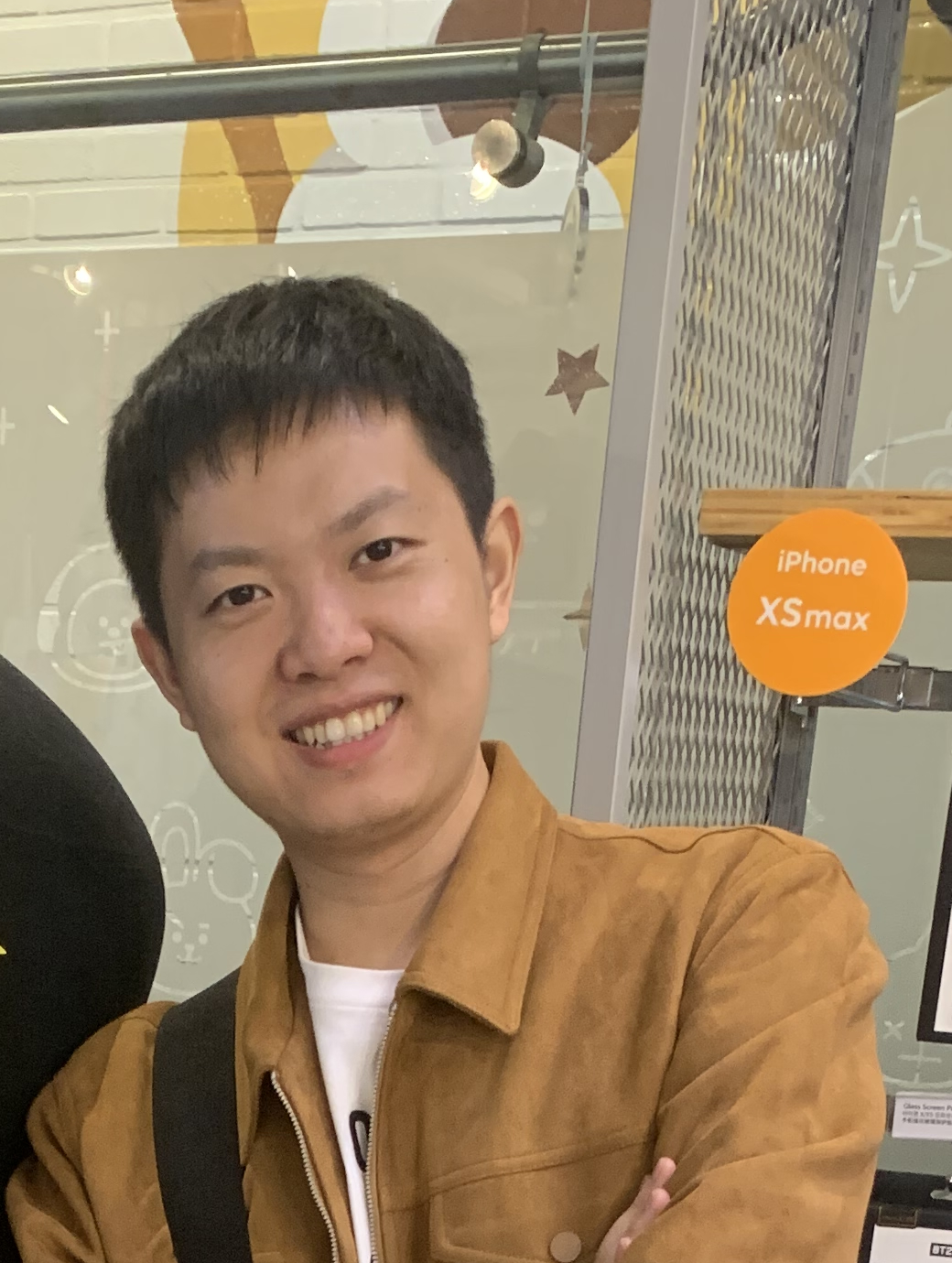
Bo Dai
Email: [email protected]
Dai Bo was a research fellow (2018-2020) in MMLab@CUHK. His research interests include computer vision and machine learning. Recently, his research focus is on generative models, video analysis, and cross-modality analysis. He received his PhD (2014-2018) from CUHK. He obtained his BEng (2010-2014) from ACM class of SJTU. Previously, he had an internship at Microsoft Research Asia. He also visited University of Toronto in 2017.
.jpg?sfvrsn=27f75e2a_0)
Phyllis Liang
Email: [email protected]
Phyllis Liang is a Research Assistant Professor and principal investigator at the Rehabilitation Research Institute of Singapore, Nanyang Technological University. She is a senior occupational therapist and specialises in neurological rehabilitation. She completed her PhD at The University of Queensland, Australia. Phyllis is an experienced clinician and have worked in various healthcare contexts and settings across Singapore and Australia. She uses both qualitative and quantitative approaches. She is an editorial board member of Hong Kong Journal of Occupational Therapy and a research mentor in the Singapore Association of Occupational Therapy.
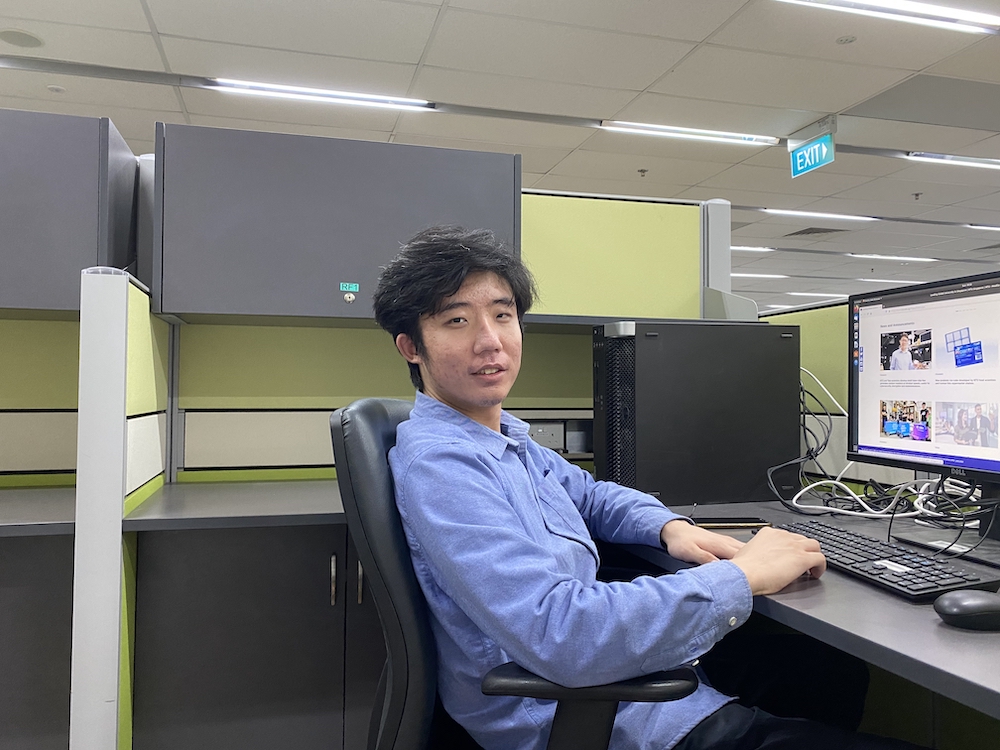
Li Yuekang
Email: [email protected]
Yuekang Li is currently a Research Assistant Professor in Continental-NTU Corporate Lab, Singapore. Prior to that, he received his B.Eng degree and Ph.D from Nanyang Technological University in 2016 and 2020. His research interests include program analysis, software testing and software security. He has publications in top-tier software engineering and security conferences such as FSE, ICSE, CCS and USENIX etc.
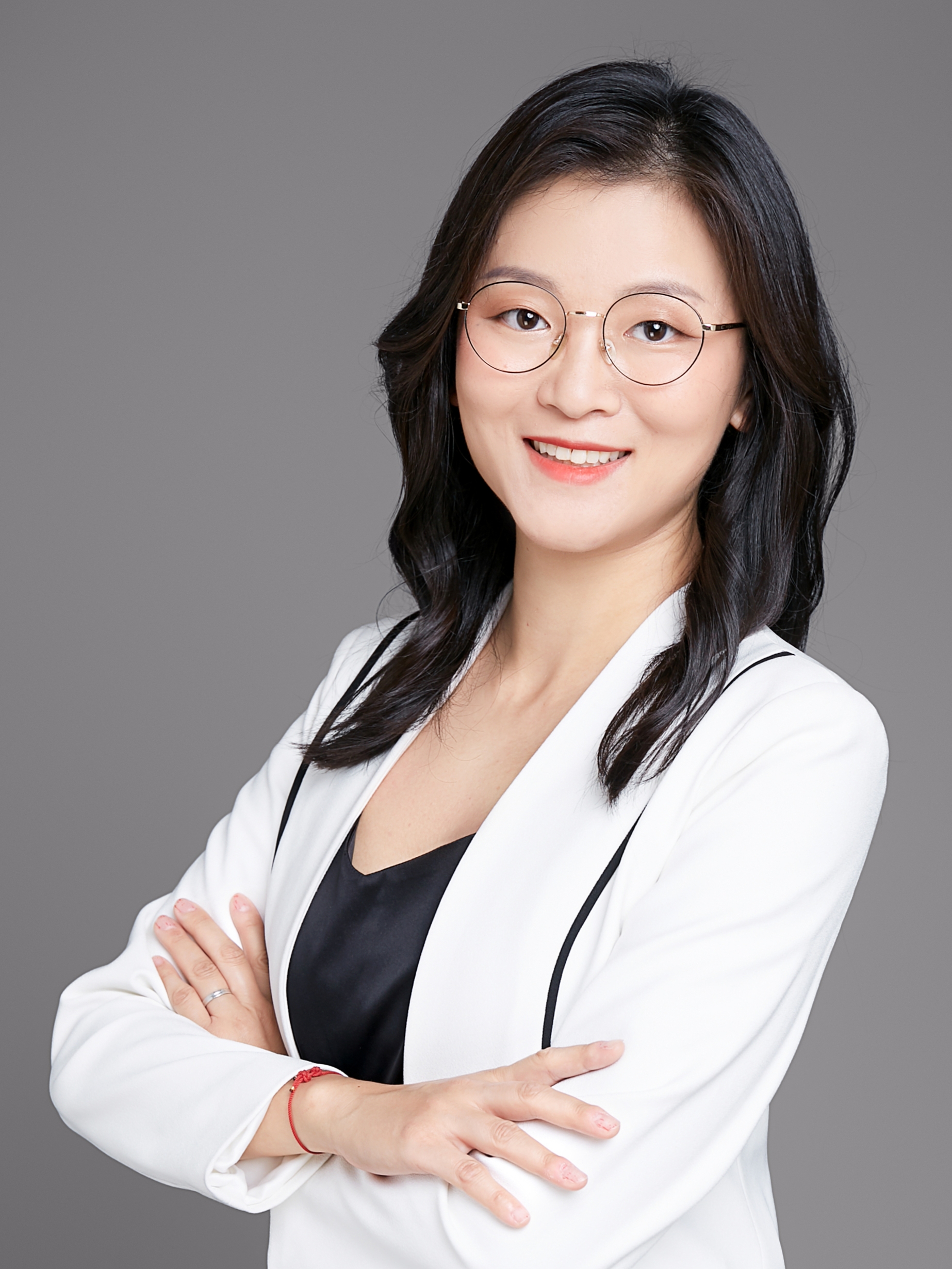
Jessica Dang
Jessica Dang is a Research Assistant Professor at the Insurance Risk and Finance Research Centre. Her current research project is supporting the Global-Asia Insurance Partnership, a tripartite partnership between the global insurance industry, regulators and policymakers, and academia. Her project focuses on how the insurance sector can contribute to an economy that is more resilient to emerging risks such as the pandemic risk. Jessica received her PhD in Actuarial Science from the University of Waterloo in 2021. Her research interests also include Monte Carlo simulation design, retirement and insurance product design, and financial risk management. She was a Society of Actuaries James C. Hickman Scholar. Jessica has had 10 years of experience working as an actuary at insurance and consulting firms in Canada. She is a Fellow of the Society of Actuaries and a Fellow of the Canadian Institute of Actuaries.
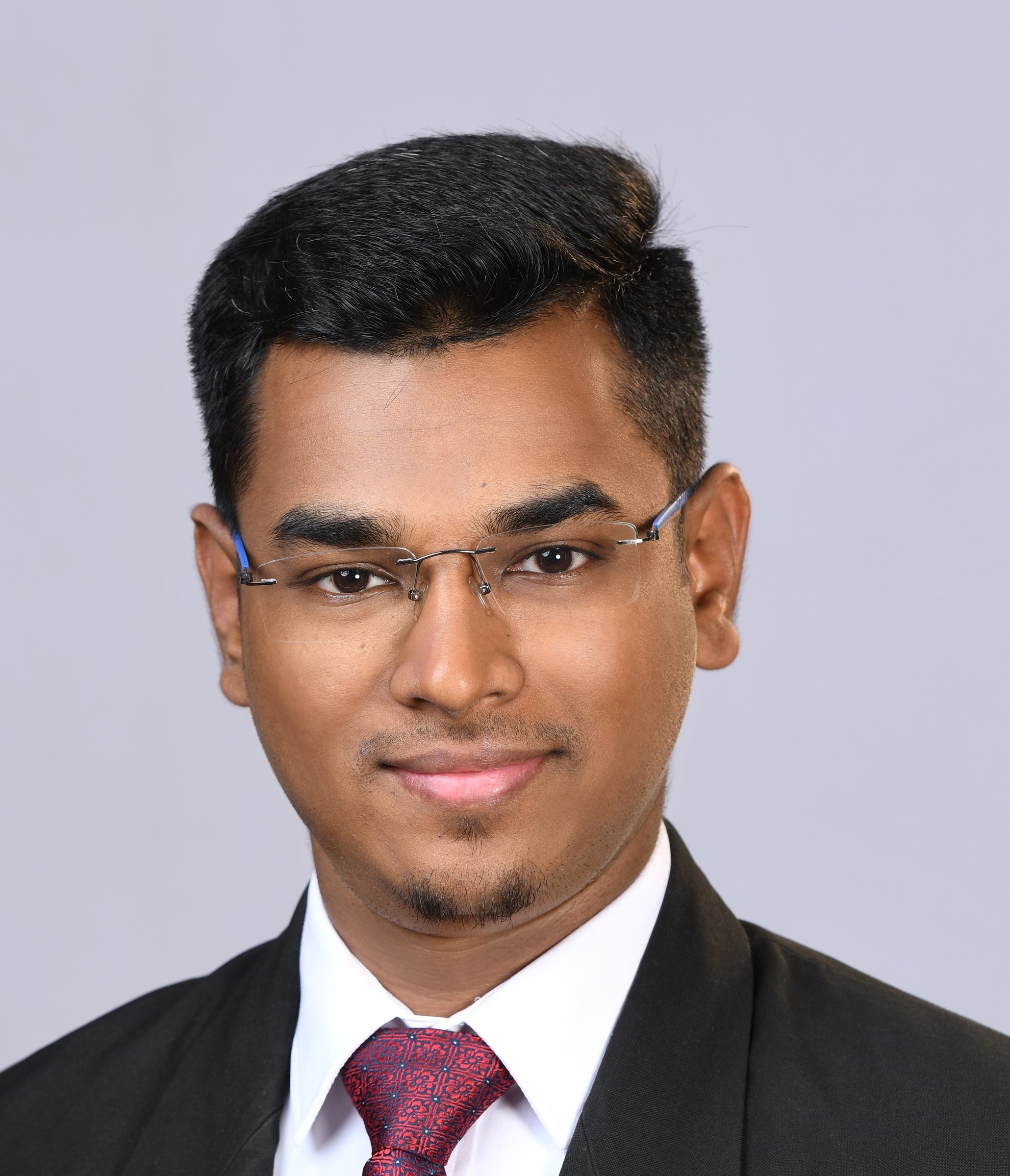
Arun Prasanth Nagalingam
Arun works as a Research Assistant Professor (RAP) at the Rolls-Royce@NTU Corporate Lab, Nanyang Technological University, Singapore. Through cutting-edge technology development and commercialization, he contributes to the Singapore 2030 Advanced Manufacturing Hub (AMH) and Jurong Innovation District (JID) initiatives. In addition, Arun is the IPT-Lead of the Manufacturing Technologies programme at Rolls-Royce and manages several projects, researchers, interns, and students.
Arun holds several professional memberships, including the European society for precision engineering and nanotechnology (euspen), project management institute (PMI) Singapore chapter etc. He is an active young member of the institute of mechanical engineers (IMechE) and works with student chapters to develop component engineers at NTU.
Arun’s doctoral work includes the development of a novel post-process surface finishing technique for additively manufactured complex internal passages in aerospace components. He utilized cavitation (a phenomenon that was stated uncontrollable and destructive in the marine industry), harnessed its intensity through a novel machine design, and constructively used it for surface engineering of hard-to-machine materials, including Titanium, Inconel, and Haynes. The process is deemed sustainable as water is the primary working fluid with just a 1.0 % addition of abrasives (while conventional techniques use 60-80 % abrasives). His other research work includes developing and modeling the intelligent vibratory polishing process of 6-stage blisks, additive manufacturing topology optimization and thermal simulations of aircraft electrical engines, etc. In collaboration with the Singapore Centre for 3D Printing (SC3DP), his past research work includes multimaterial polymer, fiber 3D printing of lightweight structures, dynamic materials testing, and non-destructive inspection of crack initiation in complex lattice structures.
In his research portfolio, Arun has several awards, patents, journals, conference proceedings, books, and posters related to advanced manufacturing technologies. In addition, he also serves as a guest editor and reviewer in several international journals, including Additive Manufacturing, Powder Technology, the Journal of Manufacturing Processes, Materials, Coatings, etc.

Bing Song
Bing Song is a Research Assistant Professor at HP-NTU Digital Manufacturing Corporate Lab, and she currently focuses on bridging control and reinforcement learning for robotics. Bing Song received her PhD in Control Theory Lab at Columbia University (2018). Her PhD focused on iterative learning control, specifically how to utilize data and dynamic model in learning. She expanded her research to robotics afterwards at Robotic Manipulation and Mobility Lab from 2019 to 2020 at Columbia University.

Lam Bhan
Lam Bhan is a Research Assistant Professor at the Smart Nation Lab at the School of Electrical and Electronic Engineering, Nanyang Technological University, Singapore. He received the B.Eng. (Hons.) and Ph.D. degrees both from the School of Electrical and Electronic Engineering, Nanyang Technological University, Singapore, in 2013 and 2019, respectively. In 2015, he was a visiting postgrad in the signal processing and control group at the Institute of Sound and Vibration Research, University of Southampton, UK. He was previously a research fellow at the School of Electrical and Electronic Engineering, Nanyang Technological University, Singapore. He has authored more than 40 refereed journal articles and conference papers in the areas of acoustics, soundscape, and signal processing for active control. Dr. Lam was awarded the NTU Research Scholarship and EEE Graduate Award to undertake his PhD under the supervision of Professor Woon-Seng Gan. He was an invited tutorial speaker at APSIPA ASC 2020.

Li Chongyi
Email: [email protected]
Chongyi Li is a Research Assistant Professor with the School of Computer Science and Engineering, Nanyang Technological University, Singapore. Prior to this position, he worked as a Postdoctoral Research Fellow in the same university, from 2020 to 2021, and City University of Hong Kong (CityU), from 2018 to 2020. He received his Ph.D. (2018) from Tianjin University under a joint training program with Australian National University. His research interests include image processing, computer vision, and deep learning, particularly in the domains of image restoration and enhancement. He published papers in top-tier journals and conferences, such as TPAMI, TIP, CVPR, ECCV, NeurIPs, etc. Among them, four papers were recognized as ‘ESI Highly Cited Paper’. He serves as an Associate Editor of the Springer Journal of Signal, Image and Video Processing and a Guest Editor of the IEEE Journal of Oceanic Engineering. He served as a senior program committee at AAAI 2022. He was selected as ‘Outstanding Reviewer’ of CVPR 2021 and ICCV 2021.
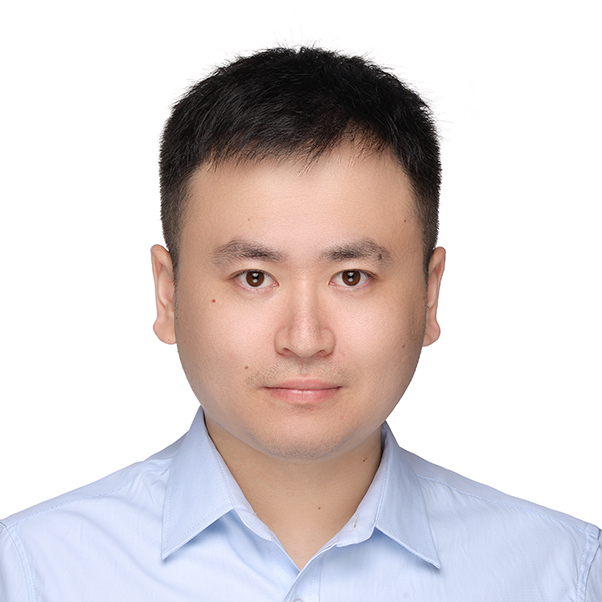
Shi Dongyuan
Email: [email protected]
Shi Dongyuan is currently a Research Assistant Professor in the School of Electrical and Electronic Engineering (EEE) at the Nanyang Technological University (NTU), Singapore. He completed his Ph.D. at the Nanyang Technological University under the supervision of Professor Gan Woon Seng. His research interests include advanced active noise control, deep learning, digital signal processing, adaptive array processing, and high-speed real-time digital system implementation. His work has been published in the Journals such as the journal of Acoustic Society of America (JASA), ACM/IEEE Transaction on Audio, Speech, and Language Processing (TASLP), IEEE transaction on Very Large Scale Integration (VLSI) system, Signal Processing (SP), IEEE Signal Letter (SPL), Mechanical Systems, and Signal Processing (MSSP), and IEEE International Conference on Acoustics, Speech, and Signal Processing (ICASSP). He is currently a member of the IEEE and Signal Processing Society (SPS). He serves as the associate editor of IEICE Transactions on Fundamentals of Electronics, Communications, and Computer Sciences and the first guest editor of Applied Science.

Wang Xinrun
Email: [email protected]
Xinrun Wang is currently a Research Assistant Professor in the School of Computer Science and Engineering (SCSE) at the Nanyang Technological University (NTU), Singapore. He obtained his PhD degree in computer science from NTU in 2020, under the supervision of Associate Professor Bo An. His research interests include algorithmic game theory, reinforcement learning and multi-agent reinforcement learning. He has published more than 10 papers at top AI conferences, i.e., AAAI, IJCAI, ICLR and NeurIPS.

Teng Zhiyang
Project Title: Towards Few-shot Temporal Sentence Video Grounding in the Wild
S-Lab for Advanced Intelligence
Email: [email protected]
Zhiyang Teng currently holds the position of Research Assistant Professor at the S-Lab for Advanced Intelligence, within the School of Computer Science and Engineering (SCSE) at Nanyang Technological University (NTU), Singapore. He was a research fellow in Westlake University from 2018 to 2022. He obtained his PhD degree from SUTD in 2018. His research interests include natural language processing (NLP) and temporal sentence video grounding. He is the second author of the NLP textbook, "Natural Language Processing: A Machine Learning Perspective," published by Cambridge University Press. He has published papers in top-tier venues including ACL, EMNLP, TACL and NAACL. In addition, he served as an area chair for EMNLP 2021, AACL-IJCNLP 2022, and EMNLP 2022.
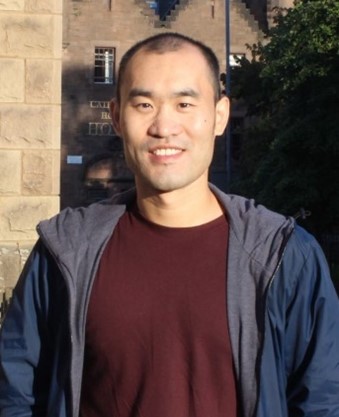
Wang Jiabo
Project Title: Where Cryptography Meets Coding Theory: Secure Communication and Computing
Strategic Centre for Research in Privacy-Preserving Technologies
Email: [email protected]
Jiabo Wang is a Research Assistant Professor and principal investigator at the Strategic Centre for Research in Privacy-Preserving Technologies and Systems, Nanyang Technological University, Singapore. Prior to joining NTU, he was a Research Fellow at Tsinghua University, Beijing, China, between 2021 and 2022. He received his PhD in Electrical and Electronic Engineering from Imperial College London, UK, in 2021. Jiabo’s research interest includes coding theory, lattices-based cryptography, code-based cryptography, and privacy-preserving technologies. His current project focuses on the enhancement of privacy-preserving technologies, e.g., private set intersection and zero-knowledge proof, and on tackling challenges of privacy protection in real-world situations.
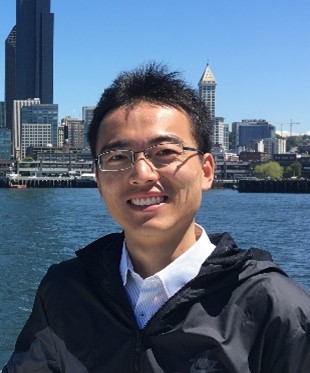
Wang Yuanzhe
Project Title: Safe Navigation of Automated Quay Crane
School of Electrical and Electronic Engineering
Email: [email protected]
Yuanzhe Wang is currently a Research Assistant Professor in the School of Electrical and Electronic Engineering at Nanyang Technological University, Singapore. He obtained the B.Eng. degree from Southeast University, China, in 2010, the M.Eng. degree from Beihang University, China, in 2013, and the Ph.D. degree from Nanyang Technological University, Singapore, in 2019. His current research interests include mobile robotics, intelligent vehicles and cyber security. He has served as an Associate Editor for the IEEE/RSJ International Conference on Intelligent Robots and Systems (IROS) since 2020.
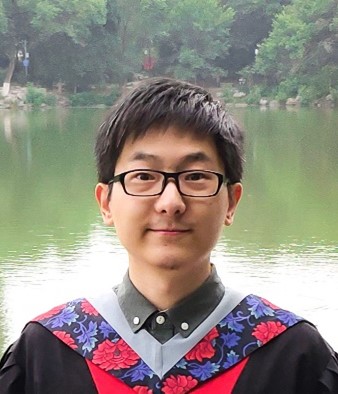
Shuai Yang
Project Title: Intelligent Visual Content Creation and Editing
S-Lab for Advanced Intelligence
Previous affiliation: PhD (Computer Applied Technology), Peking University, 2020
Email: [email protected]
Shuai Yang received the B.S. and Ph.D. degrees (Hons.) in computer science from Peking University, Beijing, China, in 2015 and 2020, respectively. He was a Research Fellow at Nanyang Technological University, from Oct. 2020 to Feb. 2023. He was a Visiting Scholar with the Texas A&M University, from Sep. 2018 to Sep. 2019. He was a Visiting Student with the National Institute of Informatics, Japan, from Mar. 2017 to Aug. 2017. He received the IEEE ICME 2020 Best Paper Awards and IEEE MMSP 2015 Top10% Paper Awards.
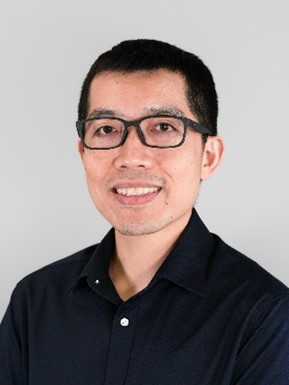
Stephen Chua Chong Wei
Project Title: Quaternary Archives of past environmental, climate and sea-level change in Singapore
Earth Observatory of Singapore
Email: [email protected]
Stephen Chua is a Research Assistant Professor working on past sea level, climate and coastal change in Singapore and the region, using geological archives for palaeoenvironmental reconstruction. Stephen joined the Interdisciplinary Graduate School, NTU under the supervision of Assoc Prof Adam Switzer and Prof Benjamin Horton as a PhD student in 2014. He received an Endeavour Research Fellowship in 2017 to conduct isotopic analysis of sediments at the Advanced Analytical Centre, James Cook University, Cairns. He sat on the Singapore Stratigraphic Committee (2014 – 2021) and led the collaborative re-evaluation of the Quaternary geology of Singapore as well as co-authored the landmark Singapore Geology Memoir (2021). Stephen is currently the Principal Investigator of a project that uses a multiproxy approach (i.e., geophysics, water quality, sediment coring and analysis) to understand climate change impacts on Singapore's offshore water resources.
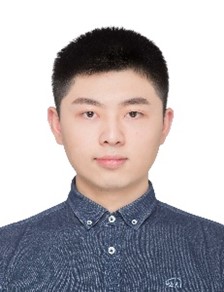
Hu Qinghao
Project Title: Building Efficient System Infrastructure for Large-Scale Generative AI
S-Lab for Advanced Intelligence
Email: [email protected]
Qinghao Hu obtained his Ph.D. degree from NTU in 2023. Before that, he received M.Sc. degree from NUS in 2020 and B.Eng. degree from Zhejiang University in 2018. His research focuses on machine learning systems and datacenter scheduling. Qinghao has published his research work in top-tier conferences, including NSDI, OSDI, ASPLOS, ATC and SC, in the field of computer systems, networking and high-performance computing. Notably, Qinghao received the Distinguished Paper Award of ASPLOS ’23 and Youth Outstanding Paper Award of WAIC ‘23. He is also a recipient of the Google PhD Fellowship.

Zhang Yinan
Project Title: Persuasive Recommendations for A Healthy and Sustainable Lifestyle
Alibaba-NTU Singapore Joint Research Institute
Email: [email protected]
Zhang Yinan is currently a Research Assistant Professor in the School of Computer Science and Engineering (SCSE) at Nanyang Technological University (NTU), Singapore. She obtained her PhD degree in computer science from NTU in 2023, under the supervision of Professor Miao Chun Yan. Her research interests include recommender systems, green intelligence, and AI for healthcare. She has published multiple papers in top-tier AI conferences and journals, such as KDD, IJCAI, TKDE, and CIKM

Georgios Rafael Domenikos
Project Title: Thermo-Informatics and AI Modelling of Neuroscientific Systems
Early Mental Potential & Wellbeing Research Centre
Email:
[email protected]
Dr. George-Rafael Domenikos is a Research Assistant Professor at Nanyang Technological University. His research focuses on modeling neuroscientific systems using mathematical modeling and artificial intelligence, and developing the new field of thermo-informatics, which combines thermodynamics and statistics. Previously, Dr. Domenikos was a Research Associate in the Department of Applied Mathematics and Theoretical Physics at Cambridge University, where he developed innovative mathematical modeling methods for behavioral and neuroscientific systems. He completed his PhD in Mechanical Engineering at the National Technical University of Athens, with a focus on statistical thermodynamics, and received the Edward F. Obert Award in 2022 from the American Society of Mechanical Engineers for an outstanding achievement in thermodynamics, considering his work in superfluids. Dr. Domenikos has collaborated extensively with universities worldwide, including the University of Central Florida and Stevens Institute of Technology. His work has been published in high impact journals including PLoS One and Scientific Reports. He has held various editorial positions in journals and is the topic organizer for AI in Energy at IMECE2024.
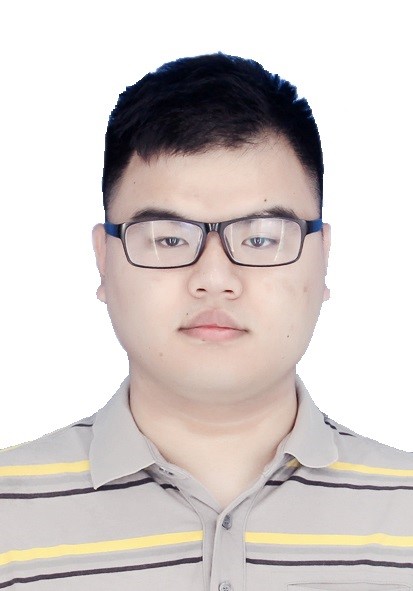
Liu Chengwei
Project Title: The Software Genome Project: Molecular Strategies in Software Security for the C/C++ Ecosystem
College of Computing & Data Science
Email:
[email protected]
Chengwei Liu is currently a Research Assistant Professor in the School of Computing and Data Science (CCDS) at the Nanyang Technological University (NTU), Singapore. He obtained his PhD degree in computer science from NTU in 2023, under the supervision of Professor Yang Liu. His research interest mainly lies in areas of Software Security, including Program Analysis, Open Source Security, Software Supply Chain Security, Open Source Governance, etc. His research works have been published in top-tier conferences and journals in Software Engineering and Security, such as ICSE, ASE, FSE, ISSTA, TDSC, Saner, etc., including two ACM SIGSOFT distinguished paper awards on ASE22 and ICSE23. He has also served as program committee members and reviewers of conferences and journals such as TSE, TOSEM, TDSC, ASE24 Industry Showcase Track, ECOOP24, ACSAC24, and MSR24.

Wu Zhenyu
Project Title: Regional Positioning System in Large Industrial Environment
Centre for Advanced Robotics Technology Innovation
Email:
[email protected]
Zhenyu Wu is currently a Research Assistant Professor with the Centre for Advanced Robotics Technology Innovation (CARTIN), Nanyang Technological University (NTU), Singapore. He received his B.Eng. degree of Electrical Engineering and Automation from Wuhan University, China, in 2016, the M.Sc. and Ph.D. degrees from NTU, Singapore, in 2017 and 2022, respectively. He has published one international patent and several papers in prestigious journals/conferences, including IEEE/ASME T-MECH, IEEE T-IM, ICRA, IROS, CVPR, and ITSC. He has served as the co-chairman and co-organizer for multiple invited/technical sessions and workshops, such as IROS 2022, CIS-RAM 2023 & 2024, and ICARCV 2024. In addition, he has also served as a reviewer in a number of well-acknowledged journals and conferences, such as IEEE T-IE, T-GRS, T-IM, RA-L, ICRA, and IROS. His research interests include intelligent perception, localization, and navigation for autonomous robots in complex environments.
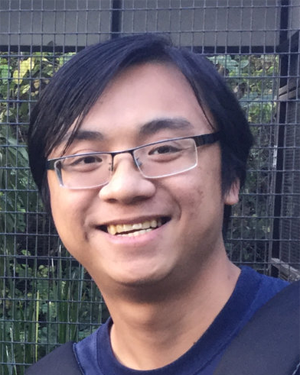
Thien-Minh Nguyen
Project Title: Long-Term Navigation In Prior Map With Human-Cognition-Inspired Cues
Centre for Advanced Robotics Technology Innovation
Email:
[email protected]
Thien-Minh Nguyen is currently a Research Assistant Professor at the Centre for Advanced Robotics Technology Innovation (CARTIN), NTU, Singapore. From 2021 to 2022 he was the Wallenberg-NTU Presidential Postdoctoral Fellow at NTU and KTH Royal Institute of Technology from 2020 to 2023. He received the 2020 EEE Best Thesis Award (Innovation Track), and the 2nd Prize at the 2021 Hilti SLAM Challenge (Academic Track). He is the co-organizer of the CARIC challenge at CDC 2023 and IROS 2024. Dr Nguyen is a Member of IEEE and IEEE Robotics and Automation Society (RAS). Dr Nguyen's research focuses on robust and intelligent perception capability for autonomous systems in complex and large-scale real-world scenarios, enabled by the synergy of complementary sensing modalities under a common mathematical framework (sensor-level), together with distilled prior knowledge inspired by human cognition processes (intelligence-level). He also has extensive experience on Unmanned Aerial Vehicles (UAVs), which are the testbed for robustness of my proposed perception systems.
